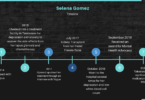By John Terhune
Boston University News Service
When we first meet Rosamund Pike’s Marla Grayson, she is solemnly telling a judge that she must protect the elderly wards in her care from themselves and their greedy family members. She looks doll-like standing before the court in a red dress, but we can sense that something is wrong. Marla’s middle-parted bob is too tidy, her eyes too blue, her flawless complexion too cold.
“All day, every day, I care,” Marla said. It’s enough to convince the judge, but the audience knows better; when Marla breaks into a gleaming smile, we can almost see a second row of teeth.
“I Care a Lot,” released on Netflix Feb. 19 after premiering at the Toronto Film Festival last September, tells the twisted story of a legal guardian who abuses the conservatorship system to con retirees out of their savings and their freedom. Marla uses a network of corrupt doctors and assisted care facilities to find a steady supply of rich seniors. After convincing a judge (using falsified medical records) that her targets are a danger to themselves, Marla assumes control of their lives and their fortunes.
Those who have followed the controversy surrounding singer Britney Spears’ conservatorship might wonder whether the topic is too dark for an otherwise breezy Netflix film. Indeed, the entire first act is tonally awkward; as Marla and her partner Fran (Eiza González) gleefully take advantage of sweet old ladies, viewers can’t tell whether they’re supposed to be enjoying the scam.
The appearance of Peter Dinklage as the mysterious and dangerous son of Marla’s newest ward (Dianne Wiest) helps the story hit its stride at the half-hour mark. Dinklage’s character, who wears patterned scarves and practices gymnastics in his office, is a cartoon villain, equal parts menacing and ridiculous. The genuine spark of humor that he brings gives the audience permission to relax and enjoy Marla’s depravity.
This is important, because Pike’s performance is the centerpiece of “I Care a Lot.” Viewers will instantly be reminded of the sociopathic Amy Dunne from 2014’s “Gone Girl,” but Pike is having even more fun here. The script places Marla in a series of one-on-one battles of will against wards, lawyers, and gangsters. It’s a treat to watch Pike outwit her foes, her sticky-sweet voice doing little to mask the threat she poses.
But Marla is even more compelling when she’s lost the upper hand. Pike wears a perfectly imperfect poker face, expertly showing us the wheels turning in Marla’s head. When things get really bad, the actress grunts and spits and staggers across the screen like a wounded animal. It’s a credit to Pike, as it’s simply impossible to look away from Marla whether she’s the hunter or the hunted.
Alas, the second half of the film makes the fatal mistake of forgetting to be fun. After the script largely abandons the assisted care facility, the audience is left with little more than a bland thriller. J Blakeson, the film’s writer and director, makes a few interesting decisions with the camera, but it’s not enough to rescue a plot that has made several turns off course.
The film’s muddled message is also disappointing, considering the guardianship system should be a prime subject for biting social commentary. Aside from a couple references to sexism, the movie rarely gets much deeper than its opening, when Marla declares, “There’s two types of people in this world: The people who take, and those getting took.” Blakeson attempts to add some depth to the story with a curveball ending, but this, too, feels tacked on and awkward, as if it came from another movie entirely.
“I Care a Lot” may contain the seeds of a genuinely transgressive film, but the version we have is too uneven to be anything more than a middling Netflix fare. Still, it’s nice to see a woman in her 40s being given the chance to carry a movie like this, and Pike’s performance certainly merits a watch.
But, don’t be surprised when you get the nervous urge to check in on your elderly relatives.





